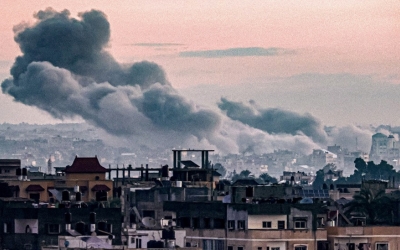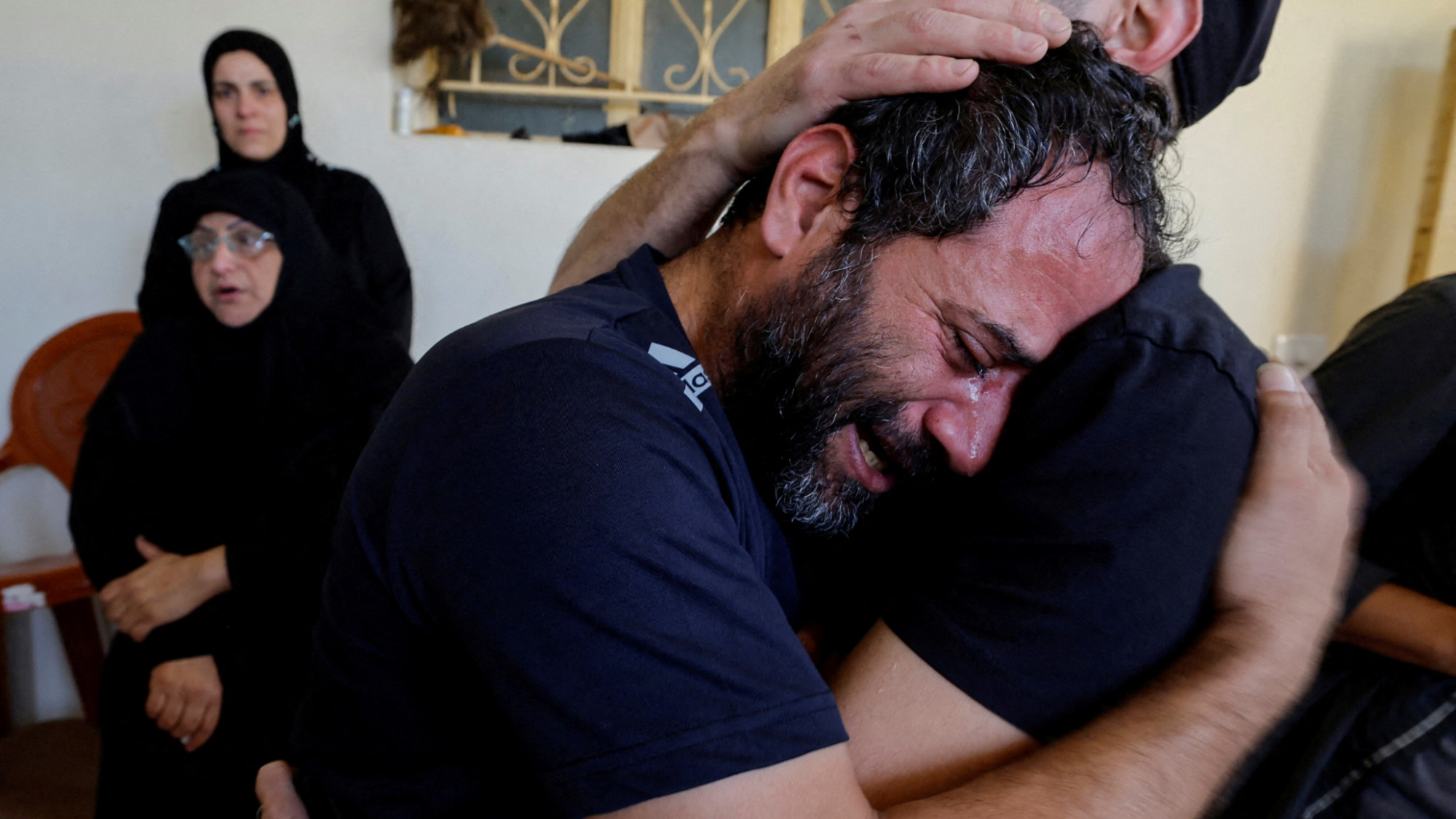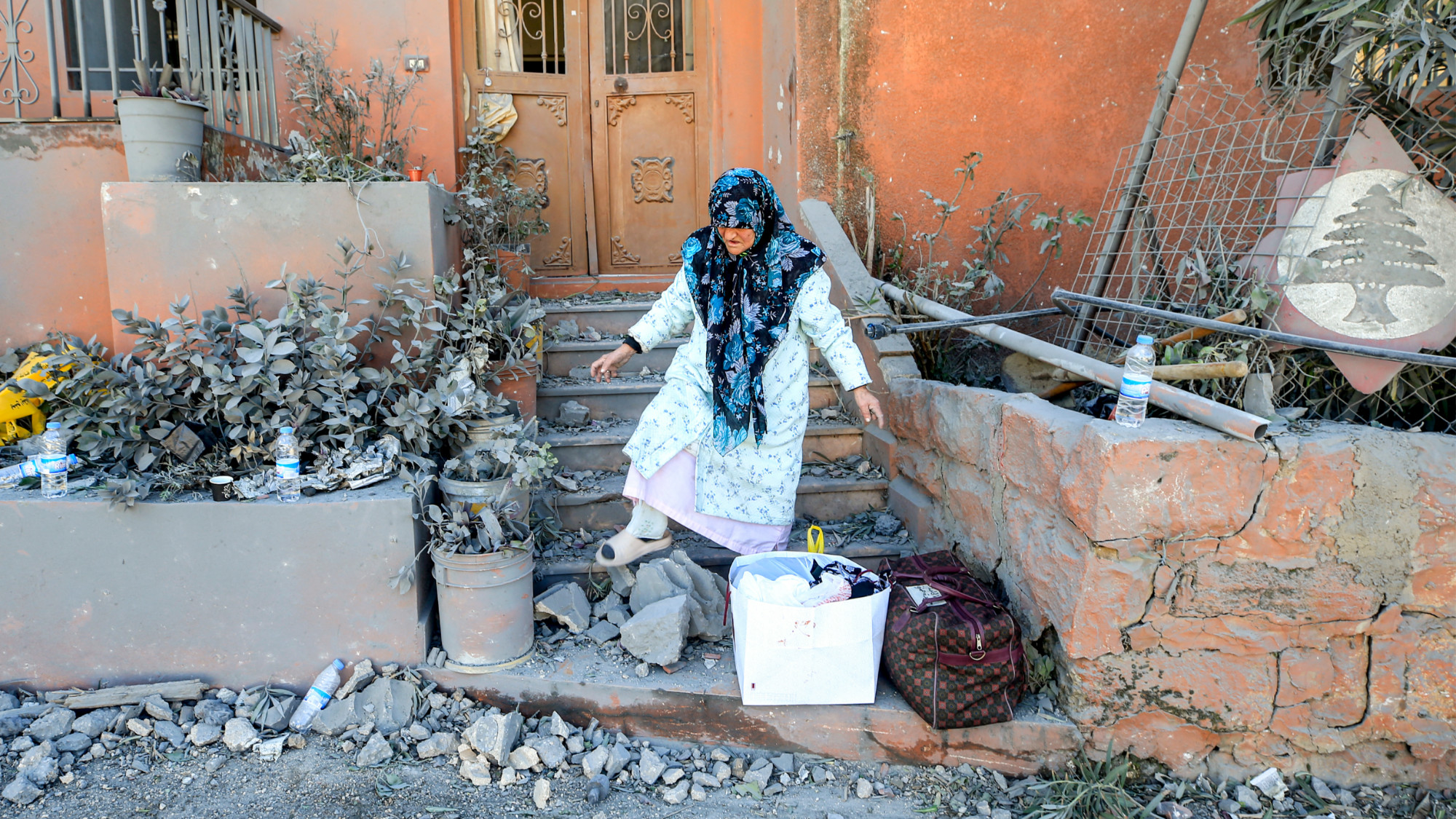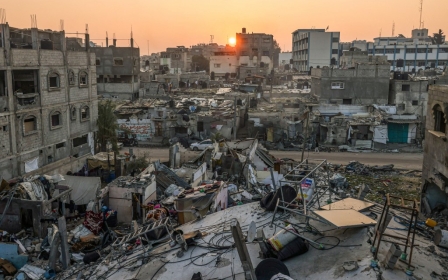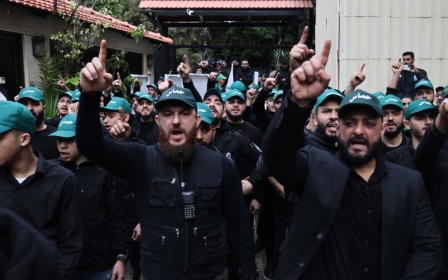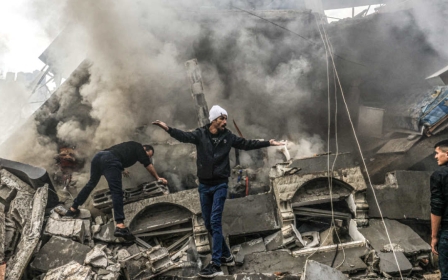100 days of war in Gaza: The risk of a full-out conflict with Lebanon's Hezbollah hasn't faded
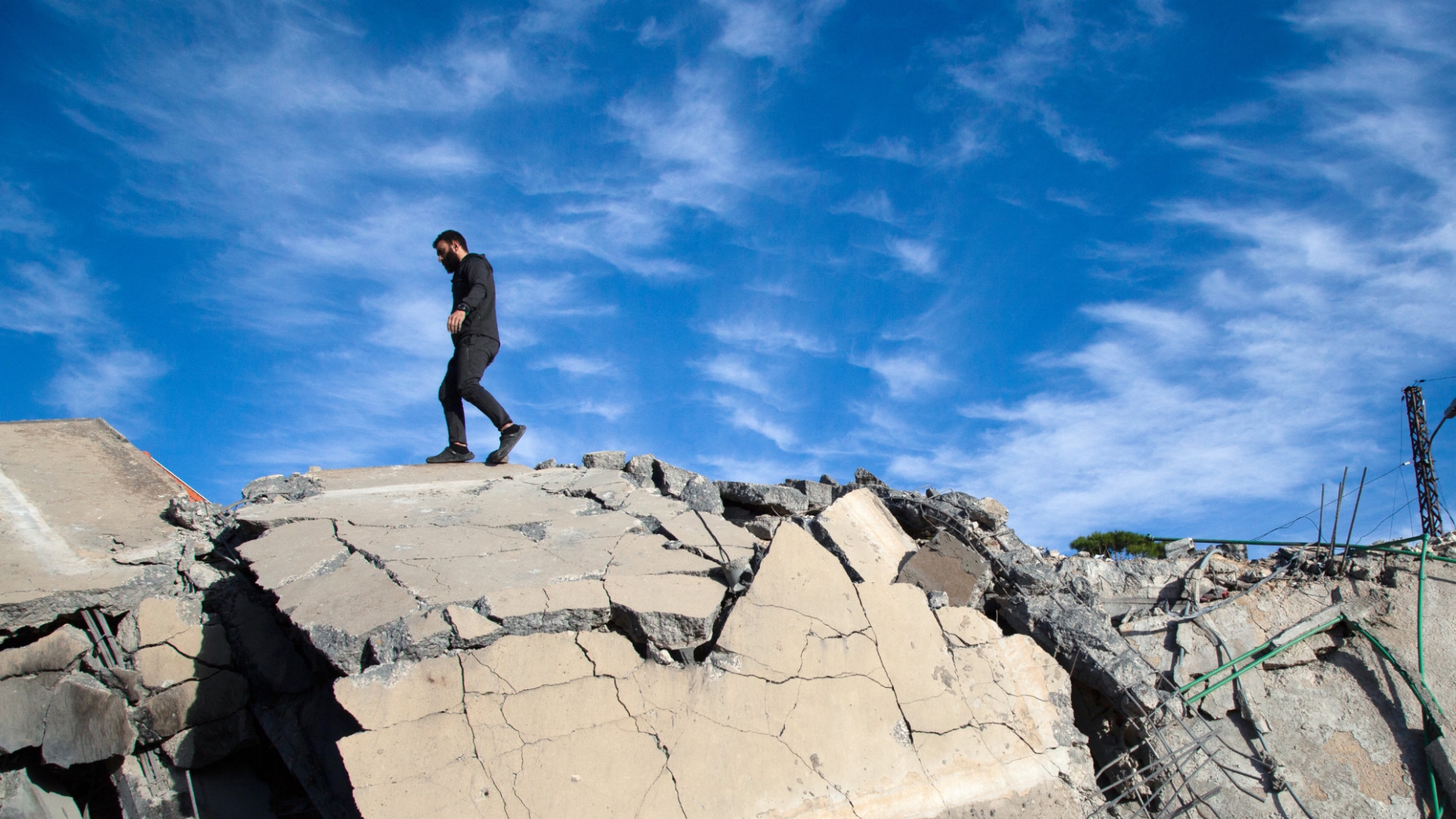
With Israel's war on Gaza entering its 100th day, the fear of a full-scale escalation with Hezbollah is growing each and every day in Lebanon.
Tensions have been building up steadily in the south of the country since 7 October, but things took a turn for the worse earlier this month when Beirut was targeted.
A suspected Israeli air strike killed senior Hamas official Saleh al-Arouri in the Lebanese capital, an act labelled a red line by Hezbollah. Anticipating a forceful response from the group, a tense atmosphere now fills the city.
"Until the al-Arouri assassination, the war was taking place in the south, with people dying every day, [but] the rest of Lebanon was pretty much oblivious," Randa Slim, senior analyst at the Washington-based Middle East Institute think tank, told Middle East Eye.
"The Arouri assassination in Beirut brought it home. Then, the mood shifted."
New MEE newsletter: Jerusalem Dispatch
Sign up to get the latest insights and analysis on Israel-Palestine, alongside Turkey Unpacked and other MEE newsletters
As an "initial" response to the assassination, Hezbollah fired rockets deeper into Israel and targeted a strategic military base last week.
It was the latest in a series of tit-for-tat attacks between the group and Israel that have been ongoing along the boundary since 8 October.
The scale and reach of fighting have been escalating slowly over the past three months, as has the rhetoric.
Hezbollah leader Hassan Nasrallah maintains that the boundary clashes are part of an effort to support Gaza and distract the Israeli military.
However, he warned in a recent speech that anyone in Israel who thinks about going to war with the group will "regret it".
In Israel, there has also been no shortage of fiery threats, such as Prime Minister Benjamin Netanyahu's promise to turn "Beirut and south Lebanon" into "Gaza and Khan Younis" if war erupts.
According to Slim, the tit-for-tat fighting remains "calibrated", and despite the rhetorical escalation, which she views as "part of psychological warfare", Israel still prefers a diplomatic solution and fears the high cost of an all-out war.
"They are trying to push the other side to make concessions that, right now, the other side is not willing to make," she said.
'A balance of horror'
The components of such a diplomatic solution are unclear.
Israel wants Hezbollah's fighters, most notably its elite Radwan force, withdrawn from the southernmost areas and relocated north of Lebanon's Litani River.
This could bring a sense of security for tens of thousands of Israelis living in the border areas, who have been evacuated and refuse to return home until the perceived threat from Hezbollah is removed.
Nasrallah has dismissed the demand, while Lebanon's caretaker Prime Minister Najib Mikati linked calm in Lebanon with a ceasefire in Gaza.
According to Qassim Qassir, an analyst close to Hezbollah, this situation leaves Lebanon in a "balance of terror" between the armed group and Israel.
'If Israel persists, all options are possible, and the situation could spiral towards a comprehensive confrontation'
- Qassim Qassir, analyst
Qassir believes Hezbollah remains keen on responding to escalations in a calculated manner that avoids a wider conflict, but nothing is guaranteed.
"If Israel persists, all options are possible, and the situation could spiral towards a comprehensive confrontation," he told MEE.
A major party to preventing an all-out war is the US, he said.
Last week, US envoy Amos Hochstein visited Lebanon and met with officials, including Mikati. He told reporters the US "would like to see a diplomatic solution", without elaborating.
After 100 days, a ceasefire in Gaza is elusive, the outlines of a "diplomatic solution" in Lebanon are unclear and border clashes are growing.
This leaves "a lot of room for miscalculation on either side", Slim said.
Civilian suffering
In southern Lebanon, life has been turned upside down for tens of thousands of people.
Since the hostilities began, at least 21 Lebanese civilians, including three journalists, and over 130 Hezbollah fighters have been killed in Israeli attacks, which have also destroyed several homes and burned 462 hectares of agricultural land.
At least 15 Israelis have been killed by Hezbollah fire, including civilians and soldiers, according to local media.
It's the highest level of violence witnessed in the region since 2006, when Hezbollah and Israel fought a month-long war.
For many in south Lebanon, which was occupied by Israel between 1982 and 2000, the situation brings back painful times.
"The south has been suffering ever since Palestine was usurped," said Tammam Moustafa, a 59-year-old from the southern border town of Houla.
Moustafa was arrested for a few months by Israeli forces in 1985 and exiled from his hometown. After the Israeli withdrawal in 2000, he returned home and opened a bakery. But now he has been forced to leave it again.
"There is no way for one to live any more," he told MEE, describing the regular Israeli bombings in the area. Now staying with family in Beirut, he describes being displaced "like when the weather is cold, and someone removes your clothes".
"You cannot leave the place you have planted your loved ones in, it is impossible to leave it," he said.
Moustafa is among 76,000 people displaced from southern Lebanon since October as the war takes a heavy toll on the civilian population.
According to Ramzi Kaiss, Lebanon researcher for Human Rights Watch (HRW), Israel has shown "a reckless disregard for civilian life" during its attacks in Lebanon.
Kaiss told MEE that HRW has documented "at least two war crimes" committed by Israel: the "apparently deliberate" killing of Reuters photographer Issam Abdallah and an air strike on a family car that killed three children and their grandmother.
"Israel has the military technology that would enable it to carry out precision strikes against military objects," Kaiss said. "But, as in Gaza, this often did not happen in Lebanon."
HRW has also found evidence of Israel using white phosphorus, a highly incendiary and harmful munition, on Lebanese towns, wounding civilians and forcing their displacement. A Washington Post investigation found that these munitions were supplied by the US.
The use of white phosphorus in populated areas is illegal under international law.
'We would rather die in our homes'
Farmers are also victims of the regular Israeli air strikes, which have scorched crops along the highly agricultural southern Lebanon landscape.
"No one can go outside to the land," said Asma Khoury, a resident of the Christian border town of Rmaich. "They are striking anyone heading to the agricultural lands. They do not want to let anyone go to the lands and plant."
Khoury, with her mother and other family members, decided to stay in their village despite the bombings. She said Israel has often targeted and destroyed abandoned homes, prompting many to stay.
Young men from the village guard the town at night to make sure no rockets are fired from the area, out of fear that it would make them a target for Israel.
Khoury said that when a shell hits a nearby area, the "entire home shakes", making everyone feel "like the house will fall on you".
The 55-year-old, who used to work for a popular fashion store in Beirut, left the capital more than three years ago, citing the difficult living conditions as the country was hit by one of the worst economic crises in modern history, according to the World Bank.
Initially thinking she would be comfortable and safe in her home town, she now has to deal with the difficult conditions brought by the economic crisis along with the increased burdens of Israeli bombings.
Residents who can leave the town make round trips to get food and supplies to people, as Khoury said companies stopped delivering goods to the border towns, while the mayor works alongside NGOs to keep the flow of supplies coming.
Despite the hardships, Khoury still refuses to leave.
"We are attached to our land, to our home. You cannot leave your home and go away," she said. "We would rather die in our homes than leave."
Middle East Eye delivers independent and unrivalled coverage and analysis of the Middle East, North Africa and beyond. To learn more about republishing this content and the associated fees, please fill out this form. More about MEE can be found here.


